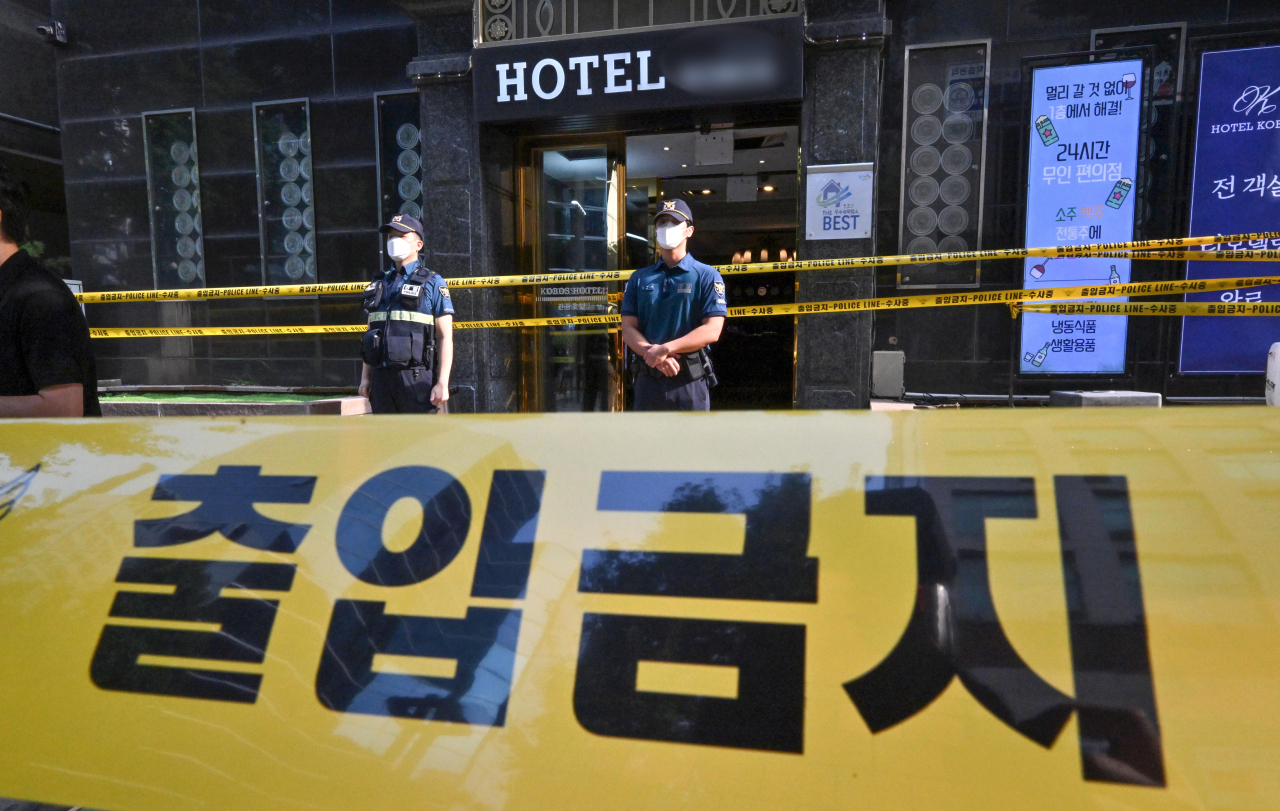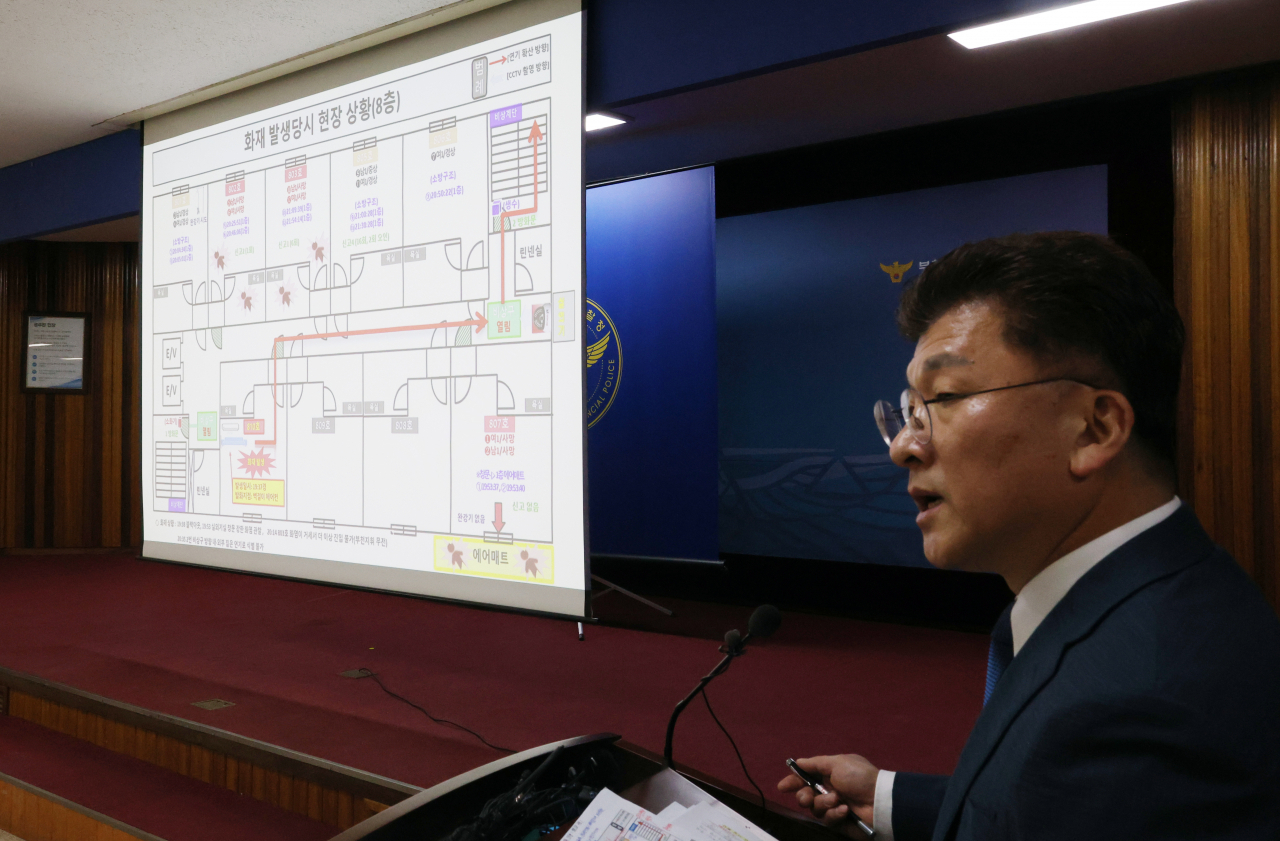 |
A police line is set up in front of a hotel in Bucheon, Gyeonggi Province on Sept. 23, a day after a fatal fire that resulted in seven casualties and 12 injuries. (Im Se-jun/The Korea Herald) |
The fatal hotel fire from August was found to be a man-made disaster, caused by the negligent management of firefighting equipment and poor electrical wiring, according to police officials on Tuesday.
The Gyeonggi Nambu Provincial Police Agency stated during its press briefing Tuesday that they have applied for a preliminary arrest warrant for four hotel authorities -- including the hotel owner, his daughter, the hotel operator and the hotel manager -- on charges of failing to fulfill their management duties.
On Aug. 22, a fire broke out on the eighth floor of a nine-story hotel in Bucheon, Gyeonggi Province, leaving seven dead and 12 injured. Authorities stated at that time that many casualties occurred due to the hotel's lack of proper firefighting equipment such as sprinkler systems.
During Tuesday’s press briefing, the police stated that the fire started from faulty wiring of a wall-mounted air conditioner in a hotel room, based on early investigative results from the National Forensic Service. Earlier on Sept. 23, the NFS had stated that the corrosion of wires connecting the indoor and outdoor air conditioner units in the hotel room may have caused the hotel fire.
“The electrical heat generated from the process of copper oxide proliferation found in the wires connecting the indoor and outdoor units of the air conditioner may have acted as an ignition source to create a blaze to the surrounding flammable materials,” said Kim Jong-min, head of the Gyeonggi Nambu Provincial Police Agency's Metropolitan Investigation Unit.
Copper oxide proliferation refers to a process where the contact resistance of a conductor increases due to the oxidation of copper at contact points, which can lead to heat generation and failure in electrical systems.
 |
Kim Jong-min, head of the Gyeonggi Nambu Provincial Police Agency’s Metropolitan Investigation Unit, speaks to the press regarding the police’s investigation into the fatal hotel fire in Bucheon, Gyeonggi Province on Tuesday. (Yonhap) |
Police stated that out of the 63 hotel rooms, 15 appeared to have air conditioning wires of poor condition, which were “visible even to the naked eye.”
As to why the fire caused so many casualties, the police explained that it was because the guest rooms were unequipped with fire door closers, which automatically shut in the event of a fire to prevent fire and smoke from spreading further into the building.
The damage was also exacerbated as fire escape doors in the hallway were held open with water bottle bundle packages for ventilation. According to the police, the flames and smoke from the eighth floor spread quickly to the other floors because the fire escape doors were held open.
Additionally, the police stated that the hotel’s fire alarm went off immediately after the blaze started but was immediately turned off by the hotel manager, causing a delay in evacuating the guests from the hotel.
“After turning off the alarm, the hotel manager went up to the eighth floor to check the room where the fire started,” said Kim. “When the employee saw the fire in the room, she returned to the first floor to reactivate the fire alarm. However, this entire process took 2 minutes and 24 seconds, resulting in an evacuation delay.”
The police added that the hotel’s firefighting equipment was negligently maintained, with 31 rooms lacking emergency descent devices despite being required to have one installed in every room. In rooms with the device, the length of the device’s rope did not meet the floor height conditions.







